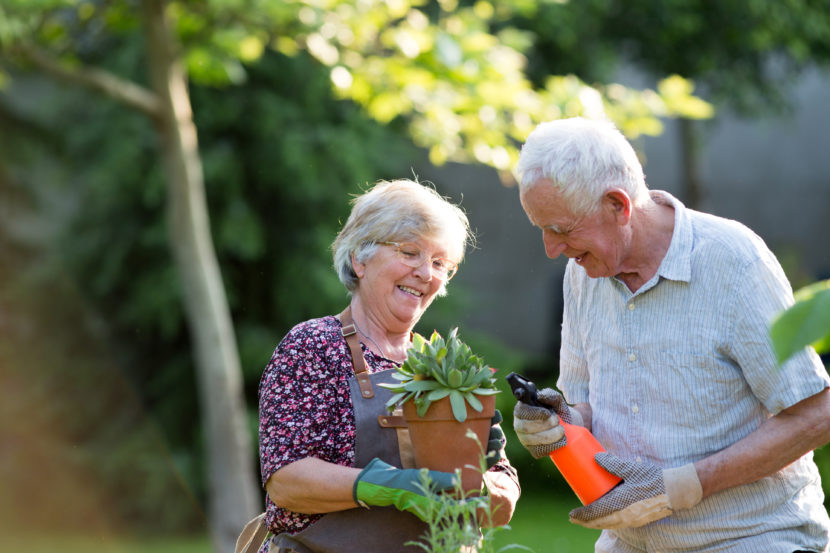As our loved ones age, they may need extra support to maintain their comfort and independence. With so many care options available, finding the right fit can feel daunting. In this blog, we’ll explore the importance of elderly care, its benefits, and the choices available to help ensure older adults live fulfilling and supported lives.
What is Elderly Care?
Elderly care is all about meeting the needs of older adults, whether that’s offering health support or assistance with daily tasks. It’s as simple as that. This care can be provided at home, in a care facility, or through community services, depending on what suits best. From assisted living and nursing homes to adult day care or hospice support, there are so many ways to ensure older adults get the care they deserve. While many families choose to care for their loved ones themselves, professional support is always an option to help make life a little easier.
What Care Options are Available for the Elderly?
When it comes to elderly care, there are various options tailored to meet individual needs and preferences, ranging from independent living to specialised care services. Here’s a closer look at some of the main types of care available:
Independent or Assisted Living
Some people or couples can be quite happy living at home but find living in their current accommodation too large for their needs. They may also benefit from support with housekeeping, shopping and cooking and would also like some companionship from time to time. Apartments within a care home community can provide good access to a range of these services on a flexible basis to meet individual needs.
Residential Care
Residential care provides 24:7 flexible supervision for people who need more sustained support. This support may include personal care and support with mobility and medication. As with independent living, residential care offers more access to social interaction and bespoke activities.
Nursing Care
A nursing home differs from a residential home in that it is staffed by Registered Nurses on a 24-hour basis. The nurses liaise with a range of multidisciplinary health
professionals to deliver person centred care based on care plans. Nursing needs may incorporate mobility assistance, skin integrity, regularly reviewing medication, dietary guidance and end of life care.
Dementia Care
People living with dementia or cognitive impairment will need specialist support from a health care team trained to meet their specific needs. The focus on care in a
dementia home is person centred care, safety and promoting health and wellbeing. Choosing the right dementia care ensures they receive the specialised support they require.
Respite Care
Although respite care is considered to be a rest for the care giver, it can also provide a well-earned break for the older family member! Respite care is normally provided
in a residential or nursing home for a short period of weeks. It allows the care giver to take a holiday and/ or reassess the care being provided. For the older family member, respite care can also be a holiday; a chance to socialise with others of the same age and also to try new activities and pastimes – so much so that they often request to come back again!
Care Community
A Care Community can be found within many modern residential and nursing homes. The community provides everything that an external community can provide with personal and social needs being met over a period of time as the older person’s health and care needs change. Family and friends are reassured that their loved one is safe and being cared for within that caring community.
Understanding the Needs of Older Loved Ones
Recognising the challenges being met by our older family members can be difficult. Often when we are close to people we don’t see and often don’t want to see their
struggles. Very often action is taken too late to protect their wellbeing. The severity and duration of the pandemic has accentuated or prolonged some of the challenges that older people face. Many older people can find themselves isolated and lonely especially as more of their friends become less mobile. Reduced emotional and mental support will have a detrimental effect on overall wellbeing and enjoyment. Self-managed health can become less consistent and if tasks are difficult to do they may be left. Moreover, if a person is isolated their safety and support systems will be compromised.
The Importance of Elderly Care
Providing care for older relatives is a vital part of maintaining a balanced and supportive society. While families often wish to care for their loved ones, modern commitments and distance can make this challenging. Professional care options, such as retirement communities, offer practical solutions, ensuring older adults receive the support they need while families gain peace of mind.
Care communities not only provide reliable assistance but also create a social and engaging environment. Older adults benefit from companionship, shared experiences, and a renewed sense of purpose, all of which promote emotional well-being and reduce loneliness.
In-depth research by ProMatura International and ACRCO concluded that “residents that live in retirement care communities have healthier, more active, more social,
more secure and happier lives”. * They specifically found that residents in these communities:
- Stay healthier for longer;
- Are more active;
- Are less lonely;
- Have a greater sense of a safety net;
- Feel more secure;
- Enjoy life more;
- Enjoy more privacy.
Supporting a Loved One: Planning Ahead
Providing care for an older relative requires thoughtful consideration and planning. Care home communities can offer essential support, from healthcare to companionship, ensuring their well-being when family is unavailable. It’s important to plan ahead, involve your loved one in discussions, and explore options early. Many care homes have waiting lists, so registering in advance is often necessary.
Researching facilities and services to find the right fit is key to maintaining dignity, happiness, and security for your loved one. With good planning and open conversations, you can make an informed choice that supports their needs and preferences.
How The Hollies Can Help
The Hollies Care Centre offers assisted living apartments, a nursing care home and suites and an all new dementia care home, Holly Oak. Our extended community offers a secure environment where residents can adapt their care plans, maintain friendships among staff and residents, keep up interests and activities and enjoy the familiarity of what they have come to love. For families, we aim to reduce anxieties by focusing on individual needs, being adaptive and informative. For further
information please call Chloe on 01453541400 or email info@thehollies.co.uk.

